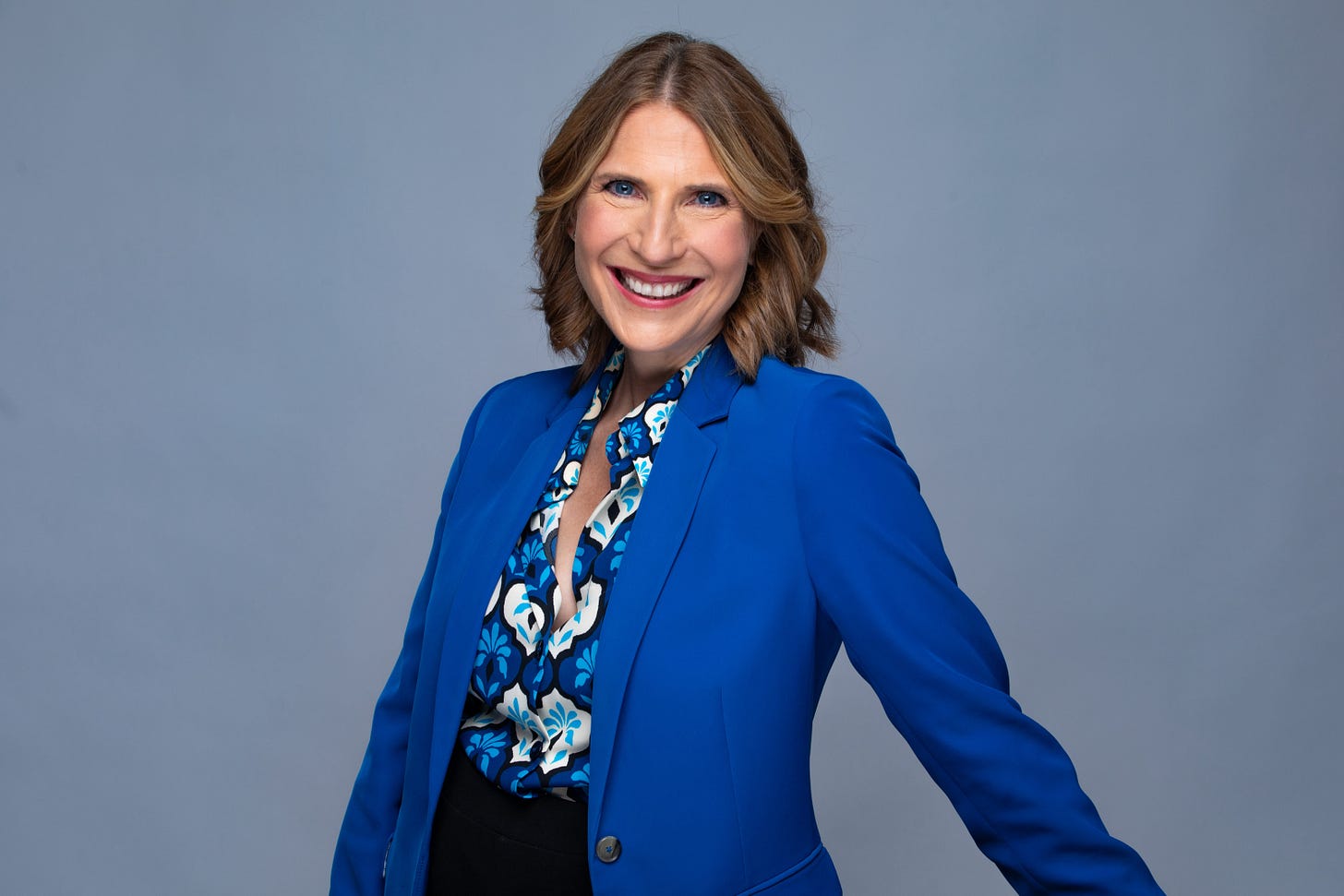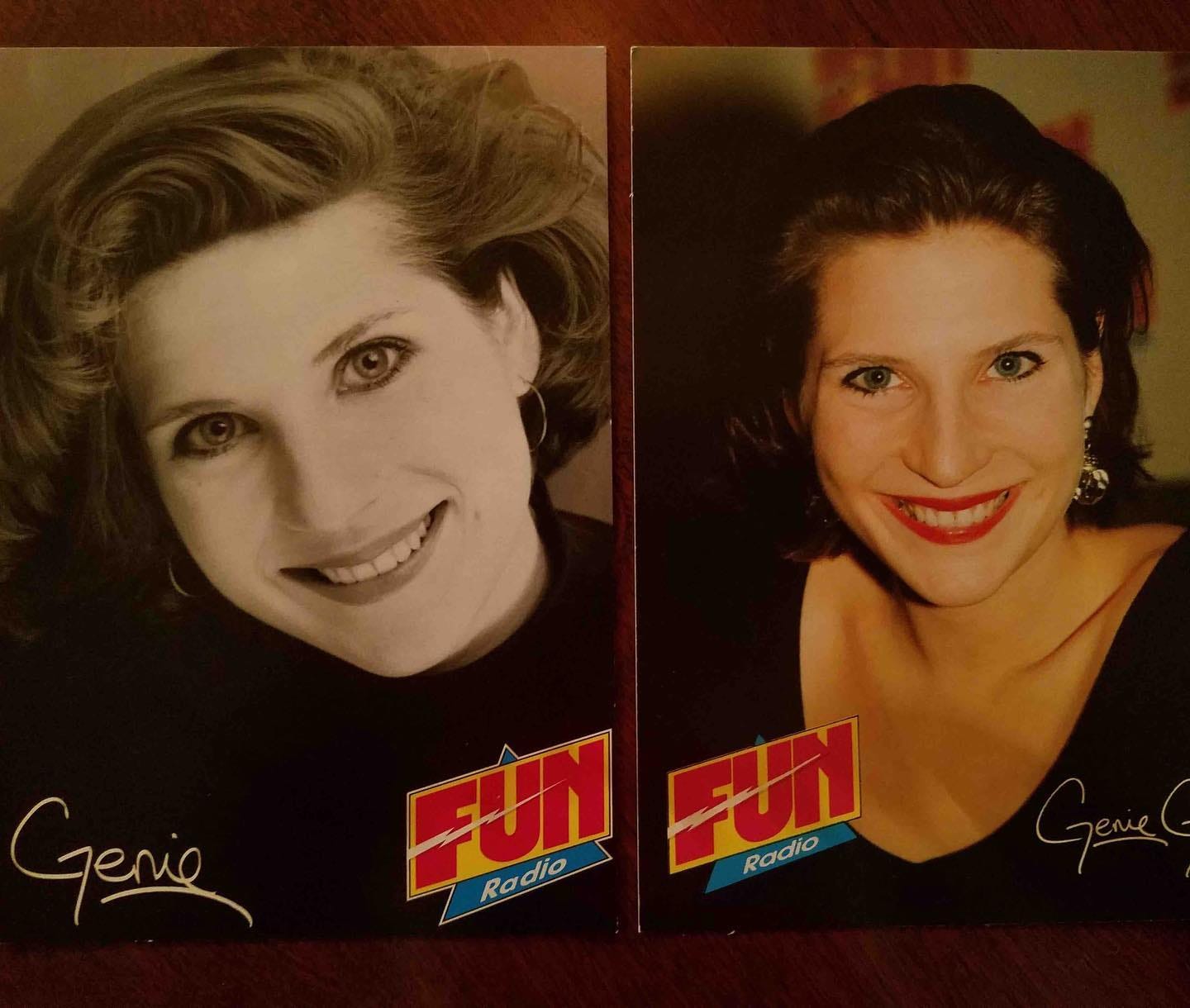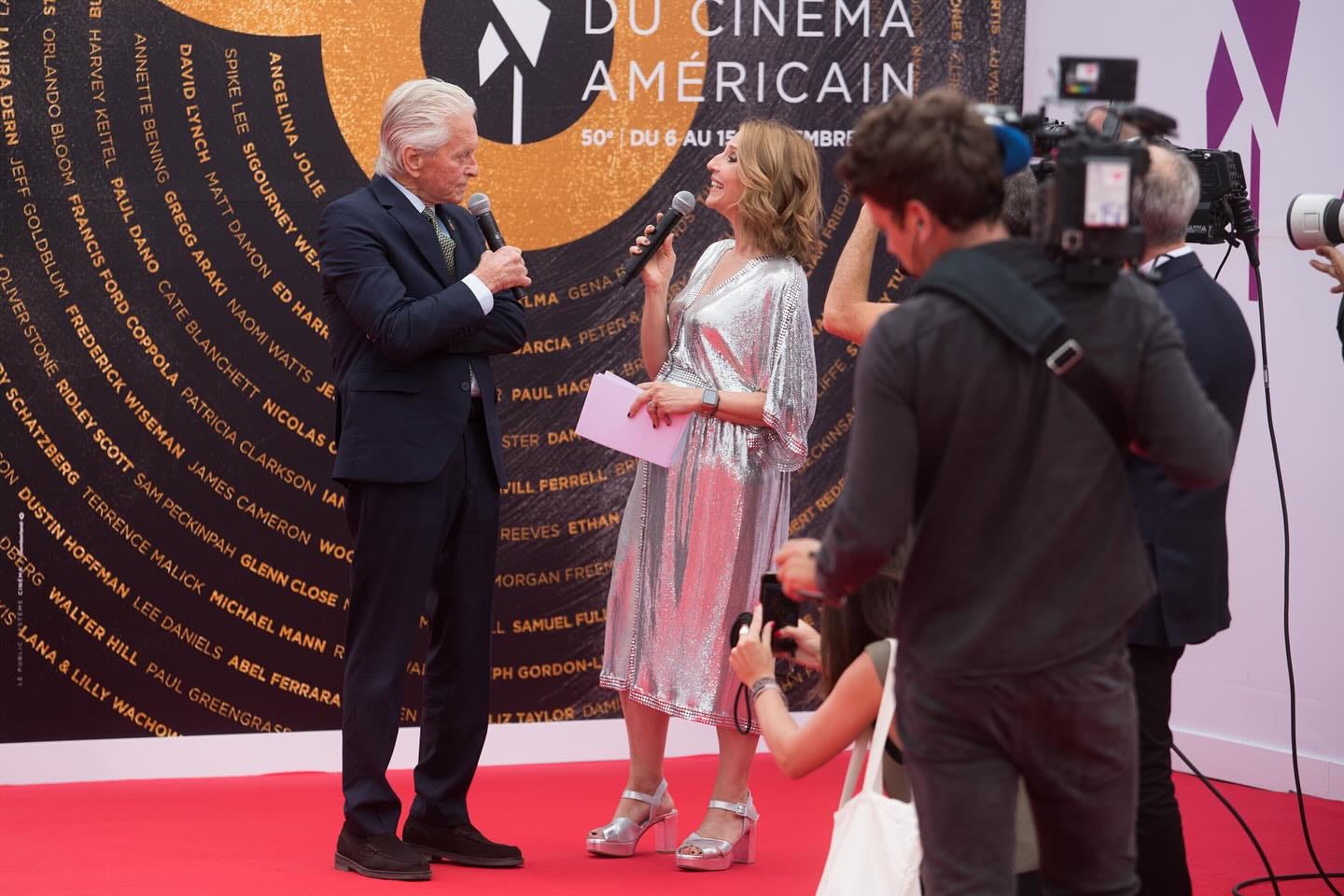Leaving America Questionnaire #4
Genie Godula, Senior Anchor for France 24 and event presenter, Paris 15th arrondissement
What drives Americans to leave home and settle elsewhere? That question has been on my mind for many years. This series, Leaving America, seeks to uncover the multitude of reasons and lessons learned—beginning with Americans in Paris. The questionnaire that follows will be the same for each guest.
I met Genie Godula, the broadcast journalist and film festival presenter extraordinaire, through mutual friends more than ten years ago but only realized how closely aligned our paths to and in Paris were upon reading her responses to this questionnaire. She came to Paris at 22 without believing she’d stay, worked a number of different jobs that formed the career she has today, fell in love, and started a family. Where we differ: she has interviewed nearly every celebrity in the business as the city’s most in-demand bilingual emcee and festival presenter, has anchored on France 24 since the station first launched in 2006, and has raised two children. She was the first person to interview me live on TV (for the release of The New Paris!) and the first journalist in Paris to demonstrate for me that some roles and opportunities emerge unexpectedly (and that’s okay!). Get to know Genie.
Where was the last place you lived in the U.S.?
Evanston, Illinois. I moved overseas three months after getting my journalism degree at Northwestern University. I actually spent a year doing a glorified internship for the BBC World Service in London before moving to Paris, so technically, that was the last place I lived before France.
Did you intend to leave permanently or was the move temporary?
I never once imagined I was leaving the U.S. for good. After my work visa ran out in London, I still didn’t feel ready to go back to the states, so I got a summer job on a campsite in the Dordogne region in southwestern France. After that, I came up to Paris and couchsurfed for a while, crashing on the floor of an American friend who had a place in the Marais. We had both performed in college so we auditioned to be singing waitresses at the Hollywood Savoy restaurant near the Bourse. That was the first in a series of performing and journalism jobs in Paris that have somehow added up to a career over the past 35 years. I feel like I gave myself a parentheses of one year after college to grow, learn, and have fun and I just never closed that parentheses.
Was there a pivotal moment when you knew your life would be best pursued elsewhere?
Very early in my television career, I co-hosted a show with French transgender cabaret star Galia Salimo. Back then, I was feeling a bit stuck professionally due to my thick American accent. She cheered me up with a quote from Jean Cocteau, which I have used as a beacon ever since:“Ce qu'on te reproche, cultive-le, c'est toi.” (“What people criticize you for, cultivate it. That’s you.”)
What sort of financial consideration did the move require, even as a student initially? Does one need a plump savings account to make this work?
Between my camp job and waitressing, I made enough to make ends meet my first year, but I was definitely living like a pauper. I did give myself a 12-month limit, however, to get a “real” job in Paris. After a lot of networking and one lucky break where I became a last-minute replacement for a DJ on France’s national station Fun Radio, I was eventually hired to host my own show. I was fortunate enough to get into the French system early in my career, which meant I qualified for France’s special unemployment program for entertainers (intermittent du spectacle). That helped cover me during dry spells so I could figure out my next move in my chosen field, as opposed to being forced to take a job I didn’t want.
At what age did you leave? Looking back, was that too soon or too late?
I moved to Paris when I was 22, so I’ve spent almost my entire career in France. I was very young, but it was right for me as I was able to bounce through several different jobs before finally settling into my current position as an anchor at France 24. Being young also gave me the energy I needed to fight battle after battle with French bureaucracy to get a work visa, a press card, a bank account, an apartment… Now that I’ve lived here longer than I lived in the U.S., I feel like I’ve finally found the right balance between being American and French. I am also grateful to have worked in France long enough to be able to take advantage of the country’s good pension scheme (if it’s still in place when I retire)!
When did you know you'd made the right [or wrong] call?
In 2005, I had two major life events. I got married and had my first child. Hosting our wedding in a French Renaissance chateau, complete with an ancient chapel, incredible food, and a champagne tower was amazing enough, but it was made even better by the many friends from the U.S. and the U.K. who made the trip to be with us. Later that year, when my son was born, I was treated to a relaxing five-day stay in a private room in our local French hospital. When my British husband and I checked out, we were shocked to see our total bill was zero. In addition to the amazing healthcare, France’s generous paid maternity leave made it easier to spend time in the states with family there. To this day, my American friends ask if I’m not worried about being fired for taking so much vacation time every year. They can’t believe it when I say you get in more trouble for NOT taking the time off. Knowing I can benefit from all France has to offer, while also keeping strong contacts with friends and family in the US, is a daily reminder I’ve made the right call.
What does Paris offer you that your native home couldn’t and, perhaps, still can’t?
A car-free existence and an incredible work-life balance that’s not under the constant threat of gun violence.
Can you share any anecdotes about your highest and lowest moments in Paris?
The first time the Eiffel Tower sparkled with its 20,000 flashing lights was at midnight on January 1, 2000. I had just done a series of standups in Saint-Germain-des-Prés for TF1’s live New Year’s Eve coverage and was on the back of a motorcycle on my way to the next live setup. Paris by night is amazing at any time, but riding on the back of a motorcycle as the city’s most famous monument came alive was definitely one to remember.
A close second could be the Friday night rollerblading “protests” around Paris that marked my twenties. The protest moniker gives the city the right to send rollerblading cops along to help out and hold traffic lights for the thousands of in-line skaters gliding by. The motorists in Paris hate getting stuck like that, but if you’re one of the rollerbladers zooming around the French capital, it’s pure magic.
A funny third that comes to mind was the opening of Euro Disney (now Disneyland Paris) in 1992. It was a star-studded extravaganza filled with French and American celebrities, but my favorite memory was the enormous revolving dinner around the Disney lake in Marne-La-Vallée. Each themed hotel had its own specialties prepared by France’s best chefs laid out in front. There were lobsters and other fruits de mer at the east-coast-themed hotel, elegant French-twist barbecue at the western hotel and pastries, meringues and mounds of chocolate-dipped strawberries at the New York. It was the perfect blend of French fabulousness and American excess and I loved every minute.
The lowest moment for me was 2015. The terror attacks marked a definite before and after, like with 9/11 in the US. The sense of safety so many of us felt here, probably without even realizing it, was shattered. It’s taken Paris a long time to recover and I’m sure for many it never will.
More personally, and being a “lifer” in France myself now, it’s been difficult to live through several cycles of expat friends moving away. I’ve since found myself consciously choosing the people I pursue friendships with, or at least checking first how long they’re planning on sticking around.
One final low moment of my Paris existence would be the dreaded “lettre recommandée” (registered letter) that employers send out when they’re firing someone, often without notice. That’s happened twice to me so far and it’s left me with permanent PTSD every time a postal worker shows up at the door!
Are there aspects of American life that you long for?
Space. Every time I go to the U.S., I am filled with house-envy and have spent far too much time drooling over big homes and yards there. I am also constantly amazed at how much higher salaries are in the U.S., but I’ve made my peace with it now. I have a colleague who left France 24 for a job at CNN. He thought he had won the lottery when they offered four times more than his salary in Paris. But after health care, education expenses, insurance, and others fees, he quickly realized his life in France was more affordable!





